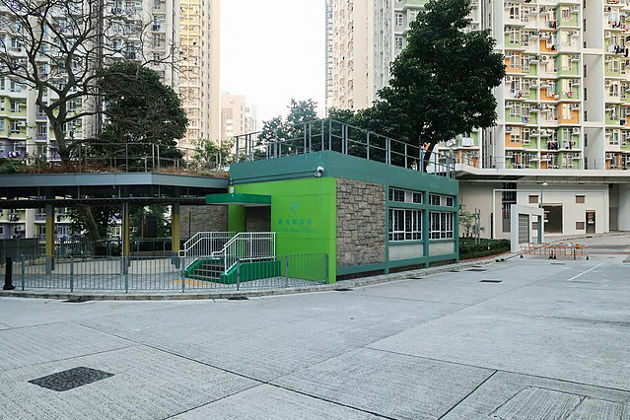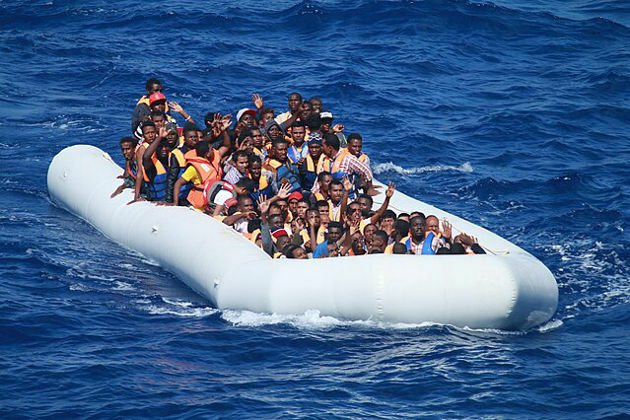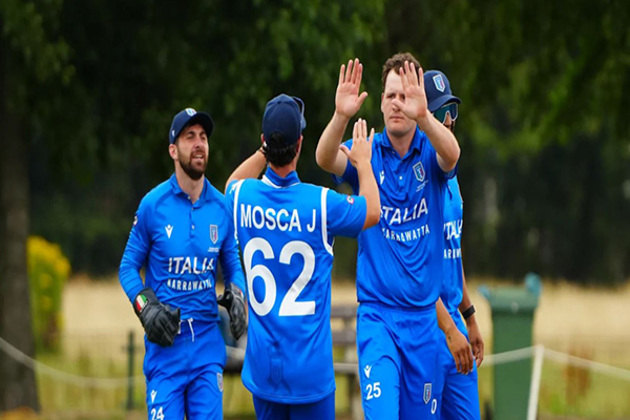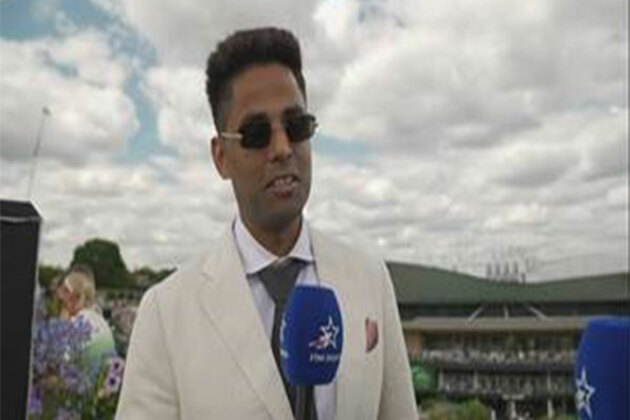Opinion Gendered Exclusion: Rethinking Taiwans Marginalisation
E-International Relations
10 Jul 2025, 18:11 GMT+10
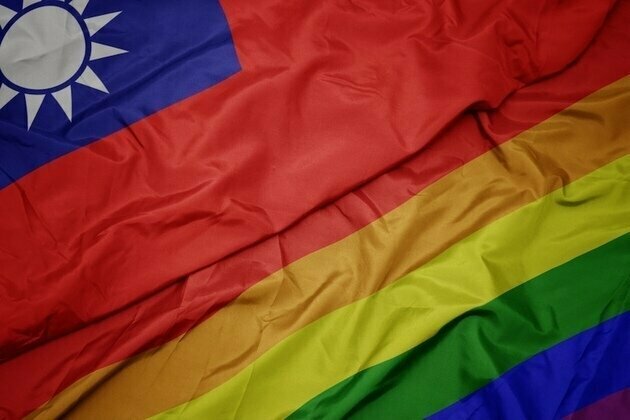
Joseph Black
Download PDF
Jul 10 2025
1
viewsRuletkka/DepositphotosTaiwans absence from multilateral institutions is often narrated as a diplomatic anomaly, a by-product of great power rivalry or a legal issue of statehood. But there is something more quietly corrosive at workan exclusion that does not merely affect Taiwan as a political entity but shapes the lives, rights, and bodily integrity of its people in profoundly unequal ways. What is often left unsaid in accounts of Taiwans marginalisation is how its absence from international fora like the World Health Organization (WHO) or Interpol disproportionately impacts women, LGBTQ+ people, and other socially vulnerable populations.
Global governance institutions are not simply venues for states to project power or resolve disputes. They are mechanisms through which knowledge is shared, crises coordinated, standards set, and human needs addressed. When an entire population is denied formal access to such institutions, it is not just the nation-state that is excluded. It is the gendered body seeking health care, the queer teenager facing violence, the migrant woman escaping abuse. These lived experiences do not fall neatly within the frameworks of sovereignty or recognition, but they are no less real, and no less urgent.
Consider Taiwans exclusion from the WHO. During the COVID-19 pandemic, Taiwan wasbarredfrom participating in the World Health Assembly, despite being one of thefirstto detect and respond to the outbreak. Taiwan recordedonly 7COVID-19 deaths in all of 2020, an extraordinary figure that went largely unacknowledged by global institutions. Itsearly alertto the WHO in late December 2019 about human-to-human transmission in Wuhan was ignored andeven denied. While Taiwan independently managed its health response, the costs of exclusion have reverberated in less visible ways. WHO programmes targeting maternal health, HIV prevention, gender-based violence, and reproductive rights are designed to function through national governments and international coordination. By default, Taiwan is excluded from these.
This has tangible effects. In 2024, Taiwan reportedrising HIV infectionrates among men who have sex with men (MSM), despite prior years of decline. It is possible that this is partly due topandemic-era disruptionsin international coordination and stigma-related barriers in access to testing and care. Without WHO support, Taiwan cannot participate in Global Fund initiatives, nor can it engage in WHOs technical cooperation on LGBTQ+ health. Womenespecially in rural and indigenous communitieslack access to WHO-endorsed guidance on gender-sensitive mental health services and post-rape care protocols.
The issue extends beyond health. Taiwans exclusion from Interpol creates security risks for all, with particularly acute consequences for women and LGBTQ+ individuals, especially in the context of human trafficking and cybercrime. The US Department of States 2023 Trafficking in Persons Report placed Taiwan inTier 1for its anti-trafficking efforts but there are gaps in international police cooperation due to its exclusion from Interpols I-24/7 global criminal database. Taiwan has documented numerous cases of women trafficked to Southeast Asia or Eastern Europe for sexual exploitation. Yet without real-time access to Interpol alerts or cross-border data-sharing, Taiwanese authorities must rely on informal channels, which delay responses and hinder victim recovery.
One recent case involvedhundredsof Taiwanese including women lured to Cambodia under false job offers and forced into online scam centres. While police forces helped repatriate some of them, Taiwans lack of formal Interpol channels slowed the process. Recently, some Taiwanese victims were rescued from similar trafficking rings in Southeast Asia, but instead of being returned to Taiwan, they weretransferredto the Peoples Republic of China. This raised serious concerns about due process and the risk of arbitrary detention or coercive interrogation, especially in politically sensitive cases where victims may face fraud or national security charges under PRC law.
Taiwans inability to access UN human rights mechanisms further compounds these challenges. Although Taiwan has domestically adopted the Convention on the Elimination of All Forms of Discrimination Against Women (CEDAW), it cannot formally become a signatory due to its exclusion from the United Nations, and it is therefore unable to submit reports to the UN Committee. The lack of international oversight weakens enforcement and limits Taiwans influence in shaping global gender equality norms.
The exclusion also plays out in global development frameworks. The UN Sustainable Development Goals (SDGs) are increasingly used as policy benchmarks across issue areas, including gender equality (Goal 5) and health (Goal 3). Yet Taiwans government is unable to submit Voluntary National Reviews to the UN High-Level Political Forum. Instead, it publishesparallel SDG reportsthat circulate outside formal channels. This prevents Taiwans experiencessuch as its efforts to address gender pay gaps, improve access to childcare, or reduce rural health disparitiesfrom informing global best practices. Conversely, it also restricts Taiwanese policymakers from engaging with the innovations and findings of other states via institutional feedback loops.
One might argue that Taiwan has developed internal capacities to fill the gaps left by exclusion. Indeed, the island has built a dynamic civil society, a responsive health care system, and one of Asiasmost progressivelegal frameworks for LGBTQ+ people. Taiwan ranks close to first in Asia in theEqualdex LGBTQ+ Rights Index, and its Gender Equality Index scoresexceedthe OECD average. But resilience does not absolve exclusion. Nor should success be mistaken for immunityclearly. Its civil society actors must expend disproportionate effort to gain international attention. Its police must work around missing links in transnational crime databases. These structural disadvantages are borne unevenly, often falling most heavily on those already marginalised by gender, sexuality, disability, or poverty.
Moreover, the symbolic dimensions of exclusion matter. When Taiwan is excluded from bodies that shape the global conversation on rights, health, or development, its people are rendered invisible in those arenas. For queer Taiwanese youth, the message is clear: your struggles are not seen at the UN. For indigenous women facing health disparities, the message is that international accountability is unavailable. This invisibility reinforces a global order in which statehood is a prerequisite for personhood in international lawa condition that runs counter to the spirit of human rights universality.
What is particularly troubling is the complicity of many international actors in this exclusion. Institutions that claim to prioritise gender equality, protect human rights, or promote health equity routinely accept Taiwans absence as a cost of diplomatic pragmatism. The WHOs constitution proclaims the highest attainable standard of health as a fundamental right of every human being, yet it excludes ~23 million people from formal participation. Interpol claims to coordinate global efforts to combat exploitation and trafficking yet turns away a territory with significant policing needs and capabilities. This is not neutrality. It is a political choice that reifies power imbalances at the expense of the vulnerable.
A gendered lens reveals that Taiwans exclusion is not a passive condition but an active structuring of inequality. It shows how multilateralism, when constrained by rigid state-based logic, can produce outcomes that contradict its normative commitments. To address this, it is not enough to argue that Taiwan deserves inclusion because it is democratic or competent. These may be true, but they leave intact a hierarchy in which recognition is conditional. What must be foregrounded instead are the lives disrupted, the rights denied, and the safety compromised by exclusion. Inclusion is not a reward. It is a necessity for equitable governance.
This is not a call for the international community to abandon the one-China policy overnight. It is, however, a demand to rethink the ways in which that policy is operationalised within multilateral institutions. Observer status, flexible participation mechanisms, and engagement with Taiwanese civil society are all feasible interim steps. Some precedents already exist: Taiwanattendedthe World Health Assembly as an observer from 2009 to 2016; its NGOs regularly participate in UN side events; its academics are active in global professional networks. But these ad hoc arrangements are not enough. What is needed is a shift in mindsetfrom viewing Taiwans inclusion as a geopolitical flashpoint to recognising it as a gendered governance imperative.
Further Reading on E-International Relations
- Opinion Beijings Weaponisation of Diplomacy Against Taiwan
- Opinion Taiwans Almighty Squeeze
- Opinion Justice for World War II Comfort Women in Taiwans Partisan Human Rights Calculus?
- Opinion Why Tsai Ing-wens Victory is a Blessing for the Taiwan Strait
- Opinion Omens for US-Taiwan Relations in the Biden Administration
- Opinion Understanding Taiwans 2024 Presidential Election
About The Author(s)
Joseph Blackholds a Juris Doctor from the University of Sydney and is currently pursuing a masters in international affairs at Kings College London and a PhD in gender studies at Chiang Mai University. He also serves as a research officer at the University of New South Wales.
TagsGender and SexualityGlobal GovernanceTaiwan
 Share
Share
 Tweet
Tweet
 Share
Share
 Flip
Flip
 Email
Email
Watch latest videos
Subscribe and Follow
Get a daily dose of Cambodian Times news through our daily email, its complimentary and keeps you fully up to date with world and business news as well.
News RELEASES
Publish news of your business, community or sports group, personnel appointments, major event and more by submitting a news release to Cambodian Times.
More InformationInternational
SectionGaza War sucking life out of an Israeli generation
In the past month alone, 23 Israeli soldiers have been killed in Gaza—three more than the number of remaining living hostages held...
Faulty IT system at heart of UK Post Office scandal, says report
LONDON, U.K.: At least 13 people are believed to have taken their own lives as a result of the U.K.'s Post Office scandal, in which...
Travelers can now keep shoes on at TSA checkpoints
WASHINGTON, D.C.: Travelers at U.S. airports will no longer need to remove their shoes during security screenings, Department of Homeland...
Rubio impersonator used AI to reach officials via Signal: cable
WASHINGTON, D.C.: An elaborate impersonation scheme involving artificial intelligence targeted senior U.S. and foreign officials in...
Warsaw responds to migration pressure with new border controls
SLUBICE, Poland: Poland reinstated border controls with Germany and Lithuania on July 7, following Germany's earlier reintroduction...
Deadly July 4 flash floods renew alarm over NWS staffing shortages
WASHINGTON, D.C.: After months of warnings from former federal officials and weather experts, the deadly flash floods that struck the...
Sports
Section'Clawing' Brewers carry streak into series with struggling Nationals
(Photo credit: Patrick Gorski-Imagn Images) Behind right-hander Quinn Priester, the Milwaukee Brewers will look to continue their...
Four teams in contention for two spots in T20 World Cup 2026 in India, Sri Lanka
New Delhi [India], July 11 (ANI): There are four teams Italy, Netherlands, Jersey and Scotland who are running for two spots on the...
Royals in power groove heading into home series vs. Mets
(Photo credit: Peter Aiken-Imagn Images) A sudden power surge has helped fuel a needed winning streak for the Kansas City Royals....
Short-handed Astros look to shut down hot Rangers offense
(Photo credit: Jayne Kamin-Oncea-Imagn Images) Houston's Isaac Paredes was named to the All-Star Game this week as an injury replacement...
Reds look to continue making history as they open series vs. Rockies
(Photo credit: Brad Mills-Imagn Images) The Cincinnati Reds need just one win this weekend to continue a unique pursuit of history...
"Have definitely come to watch him": Suryakumar on Djokovic ahead of Wimbledon semifinals
London [UK], July 11 (ANI): India T20I captain Suryakumar Yadav said he has come to watch and support his 'inspiration' Serbian tennis...


